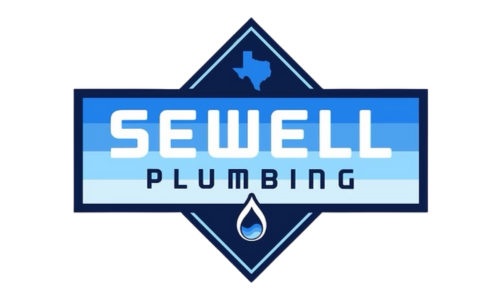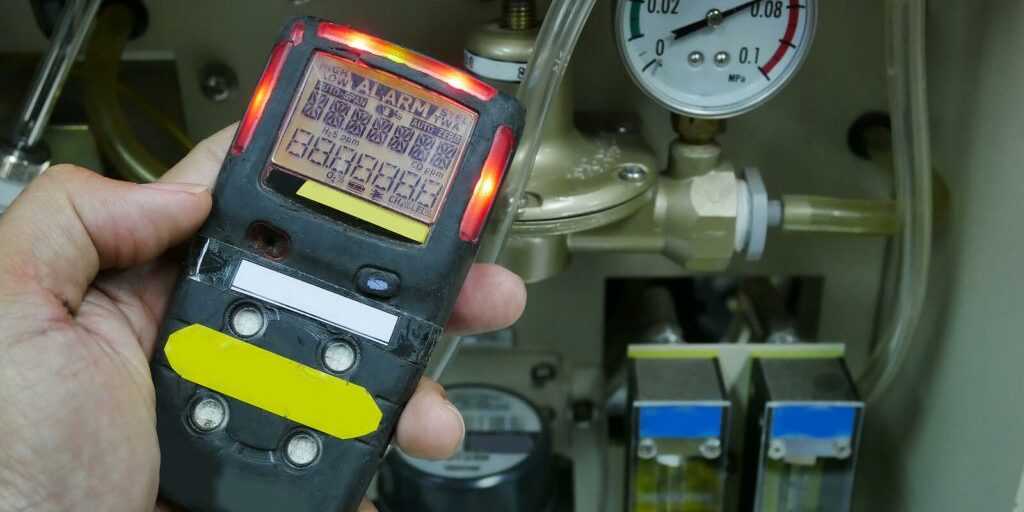Gas leaks are a silent threat that can lurk in any household, posing significant dangers ranging from health hazards to potential explosions. Gas leak detection is therefore crucial for the safety and well-being of everyone in your home. This comprehensive guide will walk you through the essentials of detecting gas leaks, from recognizing the signs to taking preventive measures.
Recognizing the Signs of a Gas Leak
Unusual Smells
One of the first and most noticeable signs of a gas leak is an unusual smell. Natural gas and propane are odorless in their natural state, but utility companies add a substance called mercaptan, which emits a smell similar to rotten eggs or sulfur. If you detect this smell, it’s a strong indicator of a gas leak.
Hissing Sounds
Another telltale sign of a gas leak is the sound of hissing or whistling near gas lines. This sound occurs when gas escapes from a small hole or crack in the gas line or connection, creating a noise as it passes through the opening.
Visible Signs
Visible signs of a gas leak include dead vegetation around the gas line area, dust or dirt being blown from a hole in the ground, or bubbling in wet or flooded areas. Any of these can indicate a gas leak and should prompt immediate action.
Health Symptoms of Gas Exposure
Immediate Symptoms
Exposure to leaking gas can cause immediate health symptoms such as headaches, dizziness, nausea, eye and throat irritation, and fatigue. These symptoms can occur quickly and should be taken seriously as indicators of gas exposure.
Long-term Health Risks
Prolonged exposure to gas leaks can lead to serious health issues including respiratory problems, decreased cognitive function, and even neurological damage. It’s crucial to address any suspected gas leaks immediately to prevent these long-term effects.
When to Seek Medical Attention
If you or anyone in your household experiences symptoms associated with gas exposure, it is vital to seek medical attention immediately after ensuring safety by evacuating the area and calling for professional help.
The Science Behind Gas Leak Detection
Types of Gas Detectors
There are several types of gas detectors available for home use, including electronic, ultrasonic, and infrared detectors. Each type uses different technology to sense the presence of gas in the air.
How Detectors Work
Gas detectors work by sensing the chemical components of the gas. For instance, electronic gas detectors measure the conductivity of the air, which changes when gas is present. Ultrasonic detectors, on the other hand, detect the sound of a gas leak, while infrared detectors measure the infrared light absorption by gas molecules.
The Role of Professional Assessment
While home detectors are essential first steps in gas leak detection, professional assessment is critical for confirming the presence of a leak and determining its severity. Professionals use advanced equipment and techniques to accurately diagnose and repair leaks.
DIY Tips for Detecting Gas Leaks at Home
Soap Solution Test
A simple DIY method for detecting gas leaks is the soap solution test. Mix a small amount of dish soap with water and apply it to the suspected area. If bubbles form, it indicates that gas is escaping from that spot.
Using Handheld Gas Detectors
Handheld gas detectors are a more technical approach to DIY gas leak detection. These devices can be purchased at hardware stores and are used by hovering them over the areas where gas lines are present. If the detector beeps or otherwise signals, it indicates a potential leak.
Safety Precautions During Detection
When checking for gas leaks, it’s crucial to avoid creating sparks or flames, as these can ignite the gas. Additionally, ensure good ventilation to mitigate the risk of gas accumulation.
Installation and Maintenance of Gas Detectors
Choosing the Right Gas Detector
When selecting a gas detector for your home, consider factors like the type of gas used in your home, the size of the area you need to monitor, and the features of the detector, such as battery life and connectivity options.
Installation Tips
Install gas detectors near potential sources of gas leaks but away from ventilation areas that could dilute the gas before it reaches the detector. It’s typically advised to install detectors in basements, near kitchen stoves, and in heating system areas.
Routine Maintenance and Testing
Regularly test and maintain your gas detectors according to the manufacturer’s instructions. This usually involves testing the alarms, replacing batteries, and occasionally recalibrating the sensors to ensure they remain accurate.
Steps to Take When a Gas Leak is Detected
Immediate Steps to Minimize Risk
If you detect a gas leak, immediately turn off the gas supply if it is safe to do so. Open windows and doors to ventilate the area, and avoid using electrical devices or open flames, as these could trigger an explosion.
Contacting Professionals
Once you have taken immediate measures to ensure safety, contact a professional gas leak detection service to inspect and repair the leak. Ensure that they are certified and have good reviews for their services.
Evacuation and Safety Protocols
In cases where the leak is significant, or if you are unsure about the severity of the leak, evacuate the premises immediately. Follow a pre-prepared evacuation plan and do not return until professionals have declared it safe.
Legal Requirements and Standards for Gas Safety
Local Regulations
Familiarize yourself with local regulations regarding gas safety and leak detection. These regulations can vary widely depending on your location, and adhering to them is not only a legal requirement but also a critical measure for safety.
National Standards
There are also national standards and certifications for gas detectors and professional gas leak services. These standards ensure that the devices and services meet minimum safety requirements.
Compliance and Penalties
Compliance with these standards and regulations is crucial. Failure to comply can result in penalties, but more importantly, it can lead to dangerous situations that could have been prevented.
Innovations in Gas Leak Detection Technology
Smart Gas Detectors
Smart gas detectors are a significant innovation in gas leak detection. These devices can connect to your home Wi-Fi network and send alerts to your phone, making it easier to monitor your home even when you’re away.
Advances in Sensor Technology
Recent advances in sensor technology have improved the accuracy and reliability of gas detectors. These improvements help reduce false alarms and ensure that real leaks are detected promptly.
Future Trends
Looking ahead, we can expect continued improvements in gas detection technology, with even smarter, more connected, and more sensitive devices becoming available.
Comparing Professional Gas Leak Services
Criteria for Choosing a Service Provider
When choosing a professional gas leak detection service, consider factors such as their certification, the technology they use, their response time, and their reputation in the industry.
Review of Top Service Providers
It’s helpful to review and compare several service providers. Look for reviews and testimonials from other customers to gauge the reliability and quality of the services offered.
Cost vs. Benefit Analysis
While professional gas leak detection services can be costly, the benefit of ensuring your home is safe from gas leaks is immeasurable. Weigh the potential costs of damage or health issues against the service fee to make an informed decision.
Case Studies of Gas Leak Incidents
Recent Incidents and Lessons Learned
Review recent case studies where gas leaks were involved in accidents or near misses. These real-life examples can provide valuable lessons on the importance of early gas leak detection and effective response.
How Detection Could Have Helped
In many cases, effective gas leak detection could have prevented these incidents. Discuss how different outcomes could have been achieved with the right technology and awareness.
Preventative Measures Taken Post-Incident
After a gas leak incident, it is crucial to review and improve safety protocols and systems to prevent future occurrences. These measures might include upgrading equipment, increasing monitoring, and educating residents.
Tips for Educating Your Family on Gas Safety
Creating a Safety Plan
Develop a comprehensive gas safety plan for your home. This plan should include steps for detecting gas leaks, responding to gas exposure, and evacuating safely.
Educational Resources for Children
Educate your children about gas safety using age-appropriate resources. Teach them to recognize the smell of gas and instruct them on what to do if they detect it.
Regular Family Drills and Discussions
Conduct regular family drills to practice your gas safety plan. Discuss gas safety regularly to keep everyone aware and prepared.
Frequently Asked Questions About Gas Leak Detection
1. How can I tell if I have a gas leak?
You might notice a rotten egg smell, hissing sounds from gas lines, or see physical signs like bubbling in water or dead vegetation near gas pipes. Installing gas detectors in your home can also alert you to leaks.
2. What should I do if I suspect a gas leak?
Immediately evacuate the area, and avoid using electrical switches, mobile phones, or anything that could ignite the gas. Once safe, contact your gas utility company or a professional gas leak detection service.
3. Are gas leaks dangerous?
Yes, gas leaks can be extremely dangerous, leading to explosions, fires, and toxic exposures. Even small leaks can have serious consequences if not addressed promptly.
4. How often should I check my appliances and gas lines for leaks?
It’s recommended to perform regular checks and maintenance annually or according to the manufacturer’s guidelines. Professional inspections should also be considered if you suspect any issues.
5. What are the best home gas leak detectors?
The best detector depends on your specific needs, but it’s wise to choose one that is sensitive to the type of gas used in your home, such as natural gas or propane, and is certified by relevant safety standards.
6. Can I install a gas leak detector myself?
Many gas leak detectors are designed for easy DIY installation, but you must follow the manufacturer’s instructions carefully. For complex systems, or if you’re unsure, it’s best to hire a professional.
7. Where should I place gas detectors in my home?
Install gas detectors near potential leak sources like gas appliances, in basements, garages, and sleeping areas to ensure that any leaks are detected promptly while providing enough time to react.
8. What is the difference between carbon monoxide (CO) detectors and gas leak detectors?
CO detectors sense carbon monoxide, which is a byproduct of incomplete combustion and different from natural gas or propane leaks. Some detectors can detect both CO and natural gas, so check the specifications when purchasing.
9. How do I maintain my gas detectors?
Test the alarms monthly, replace batteries annually or as needed, and replace the unit itself according to the manufacturer’s recommendations, typically every 5-10 years.
10. Is it necessary to call professionals after detecting a gas leak?
Yes, a professional assessment is crucial even after using your detectors. Professionals can confirm the presence and source of the leak, make necessary repairs, and ensure that your home is safe.
Conclusion
Gas leak detection is a vital aspect of home safety that should not be overlooked. By understanding the signs of a gas leak, knowing how to respond, and using the right detection tools, you can protect your family from the dangers of gas exposure. Remember, staying informed and prepared is your best defense against gas leaks. Take action today by reviewing your gas safety measures and ensuring that your home is equipped with functioning gas detectors.

